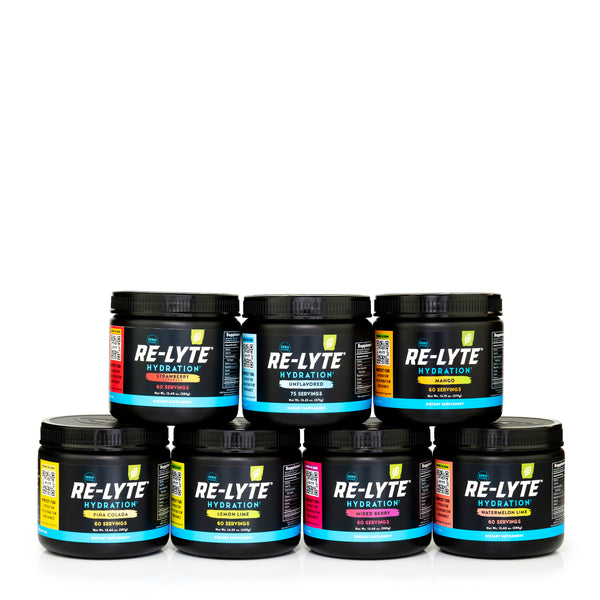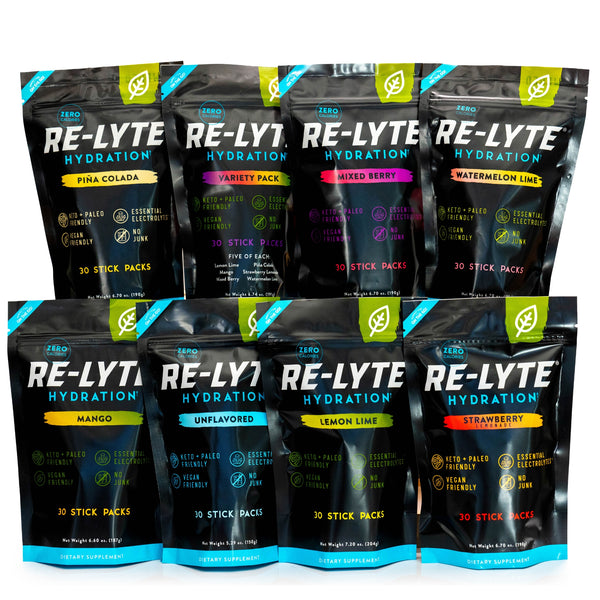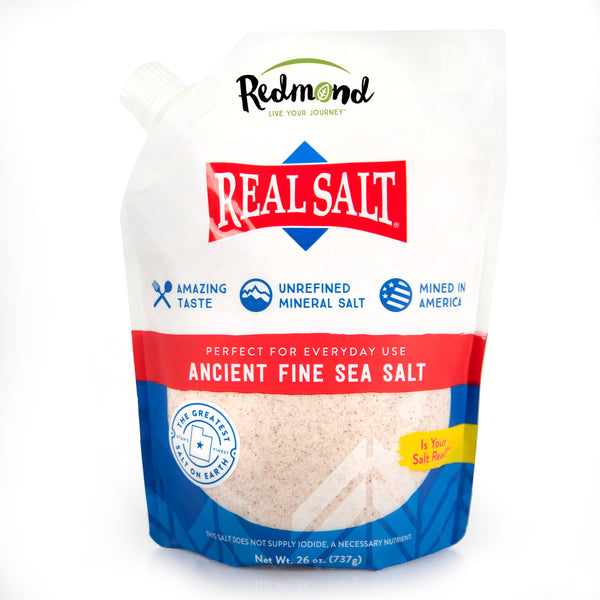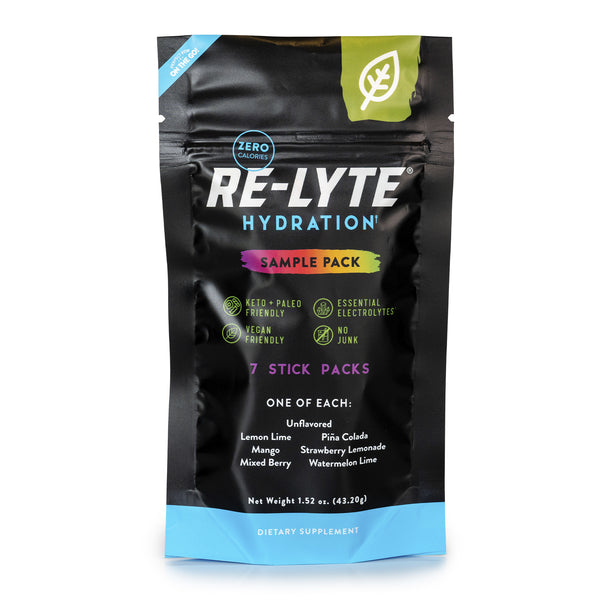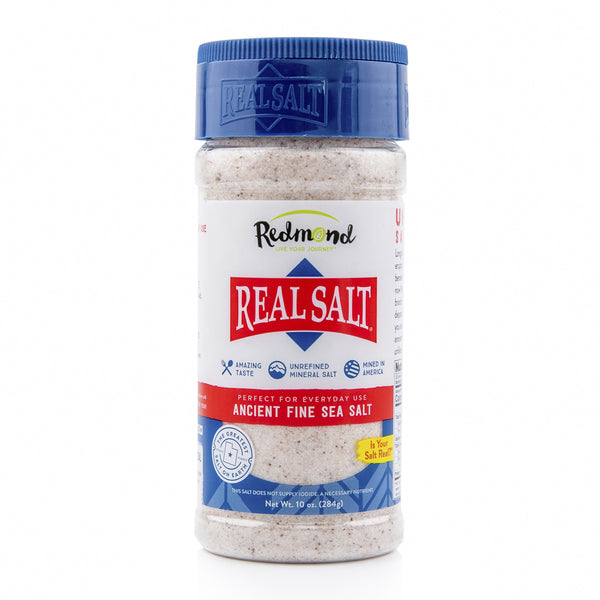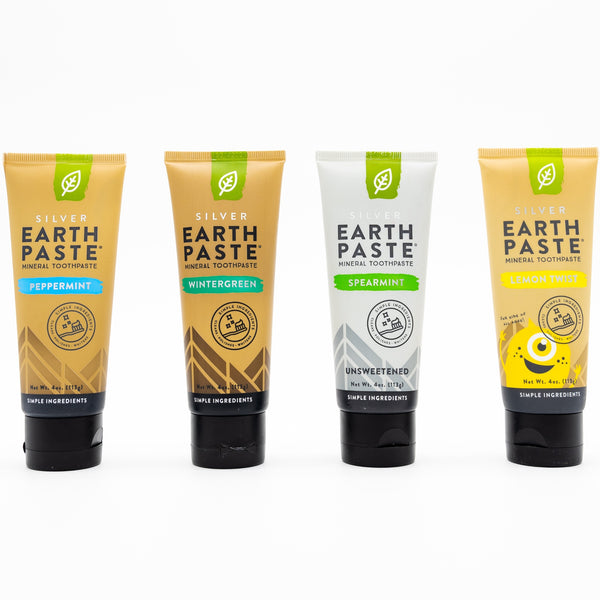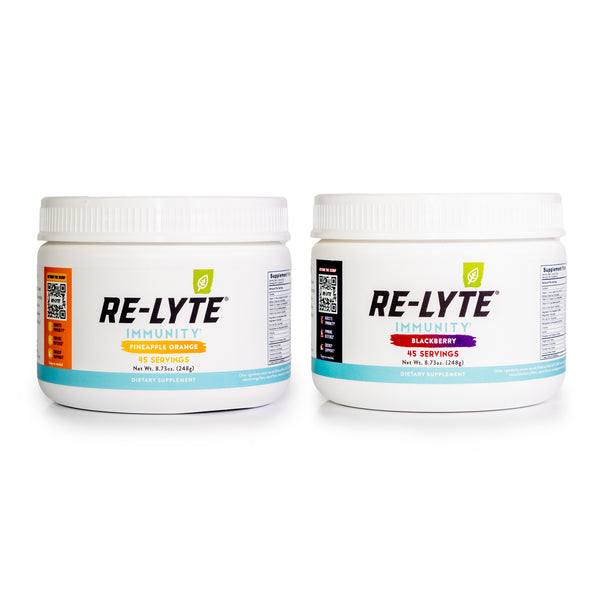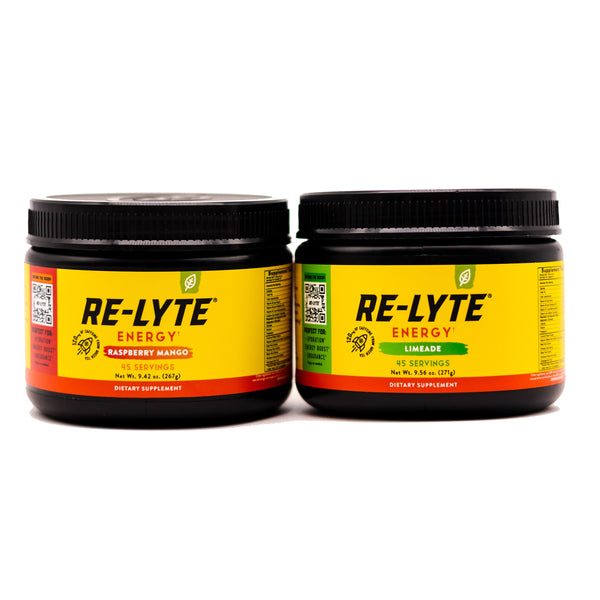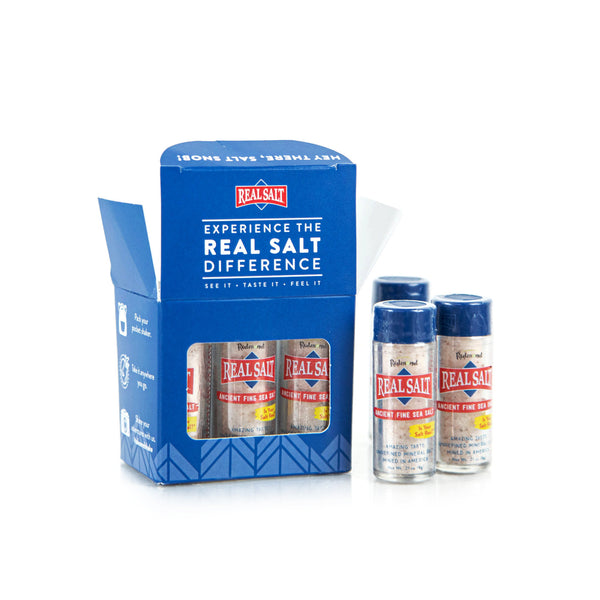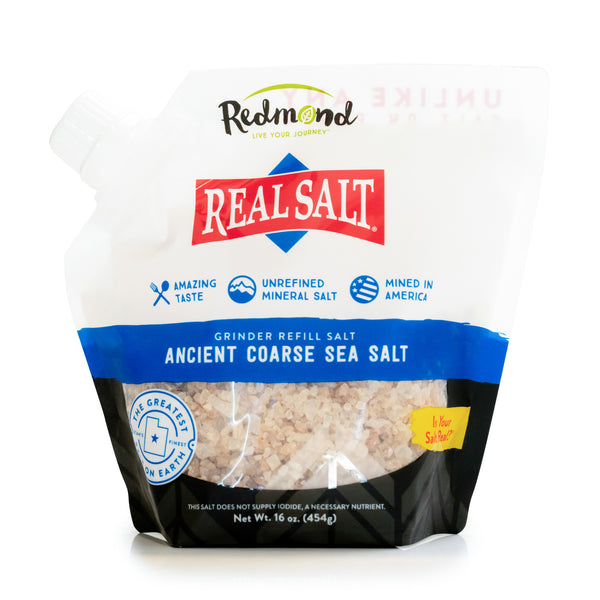Salt's Essential Role in Your Health: Q&A With Dr. James DiNicolantonio

Salt often gets a bad rap, but it's so important for staying energized, focused, and feeling your best. In this Q&A with cardiovascular research scientist and Doctor of Pharmacy Dr. James DiNicolantonio, we dive into why salt is essential and how to make sure you’re getting enough.
Redmond: Why is salt important to our diets?
Dr. James DiNicolantonio: Salt is our energy mineral as it helps to give us good blood circulation to our muscles and our brain!
When you’re low in salt, this can lead to many issues, including cramping, headaches, dizziness, brain fog, and low energy.
Redmond: Can eating a whole food diet lead to low salt intake?
Dr. James: If you’re someone who eats a whole food diet, then you’re not getting much salt from your diet, which is why so many people feel dizzy, wake up with headaches, and have low energy.
We used to get salt when we consumed the animal nose to tail, as we had direct access to the salty blood and interstitial fluids (think of lions when they eat a fresh kill, their faces are covered in blood).
However, nowadays we are getting our meat without the salty blood.
Thus, we need to add the salt back!
Redmond: How can caffeine affect our salt levels?
Dr. James: Caffeine, especially in the form of coffee, is a natriuretic and chloruretic, meaning it causes us to lose sodium and chloride (the two minerals that make up salt), respectively, out in the urine.
Coffee and caffeine also reduce the absorption of sodium/chloride from our diet by around 20% and increase sodium and chloride losses in sweat by 15%...talk about a triple combo of salt depletion—urine, intestine, and sweat!
Thus, people who consume caffeine and coffee need more salt!
The salt loss effects of tea are about 1/4th-1/5th the effects of coffee. So, there isn’t as much salt loss with tea as there is with coffee or caffeine, but there are still losses. Here’s what salt loss could look like for someone drinking coffee or tea every day:
Urinary sodium losses with coffee
1 cup of coffee = 437 mg of sodium loss
2 cups of coffee = 600 mg of sodium loss
4 cups of coffee = 1,200 mg of sodium loss
6 cups of coffee = 1,800 mg of sodium loss
Redmond: How much salt could someone lose when they sweat?
Dr. James: On average, we lose around 1,150 mg of sodium per hour of exercise through sweat. This can go as high as 2,300-6,000 mg per hour, depending on how hot it is and how hard we are working out! For example, soccer players have been known to lose up to 6,000 mg of sodium per hour of play, which is almost three teaspoons of salt lost in just one hour! On average, though, a soccer player who is playing in the heat will likely lose around one teaspoon of salt per hour of play through sweat.
Regardless of how much you are losing, if you sweat, you are not just losing plain water—you are also losing sodium and chloride (salt) in your sweat…which is why sweat tastes salty.
We also lose around 50-100 mcg of iodine per hour of sweating.
A continued depletion of iodine in the body from sweating that’s not replaced can lead to low thyroid function, a slower metabolism, weight gain, and other side effects associated with low thyroid function. Thus, we need more iodine when we sweat.
Being in a sauna, hot tub, or simply walking outside in the heat can cause us to rapidly lose salt, minerals, and water through sweat.
Redmond: What routine do you follow to make sure you’re getting enough salt daily?
Dr. James: The salt and electrolytes that I use in my water every day is Redmond Re-Lyte. I typically use one scoop of Re-Lyte in the morning with 10 oz. of water and then I will typically use one more scoop later in the day, or I’ll use Re-Lyte Kids, which is a bit lower in salt, 2-3 times throughout the day in my water (depending on how I’m feeling).
I also add Redmond Real Salt to my food by salting to taste. I like Real Salt because it’s unrefined salt from a dried-up, ancient ocean (so it lacks pollutants and contaminants that can be found in salts from modern-day oceans). It also contains approximately 170 mcg of iodine per 10 grams of salt.
If I don’t add around 1,600 mg of sodium to my whole food diet each day (using Re-Lyte, Re-Lyte Kids, and Real Salt), I always feel dizzy, have low energy, and have less focus throughout the day.
Salt is your secret weapon to supporting healthy performance, energy, and focus!
Have more questions about salt and hydration?
Check out this Q&A where Dr. DiNicolantonio answers your top hydration questions.
Comments (5)

It says on Real Salt package there is no iodine in this salt. So is there iodine or not? And if it does is there enough to cover Dailey needs.?
———
Redmond Life replied:
Hi there, thanks for your question! Real Salt does not have added iodine. It contains only the trace minerals that occur naturally in the ancient sea salt deposit. While it does have a small amount of naturally occurring iodine, it’s not enough to meet the recommended daily intake, so be sure to check with your doctor about your specific needs.

Does Redmond salt have iodine added to it or it natural?
Does Redmond salt cover the requirements for daily amounts?
———
Redmond Life replied:
Hi Ennis, thanks for your question. Real Salt does not have added iodine, it has only the trace minerals that naturally occur, not enough to meet the daily recommended intake on its own. Be sure to check with your doctor about your specific needs.

I have Lymphadema and I was told to cut out salt. Have you found that salt retains the fluid in legs? Not looking for medical advice just your point of view. Thanks
———
Redmond Life replied:
Hi Debbie, thanks so much for your thoughtful question! While we can’t offer medical advice, we understand your concerns. Some experts, like Dr. DiNicolantonio, suggest that the type and balance of electrolytes can make a difference. We recommend checking out more of his work and, of course, speaking with your healthcare provider about what’s right for you. Wishing you the best on your health journey!

Dr. DiNicolantonio…by your picture, you are obviously a young man. That being said, what routine does a person in their 70’s need to follow to ensure they’re getting enough salt and hydration?
———
Redmond Life replied:
Hi Patricia, thank you so much for your thoughtful question! We’ve passed it along and hope to feature more insights from Dr. DiNicolantonio in future posts. In the meantime, you might enjoy our blog on Hydrating for Older Adults, it offers helpful tips for staying well-hydrated as our needs change with age. Thanks again for reading! https://redmond.life/blogs/live-your-journey/hydration-as-you-age


